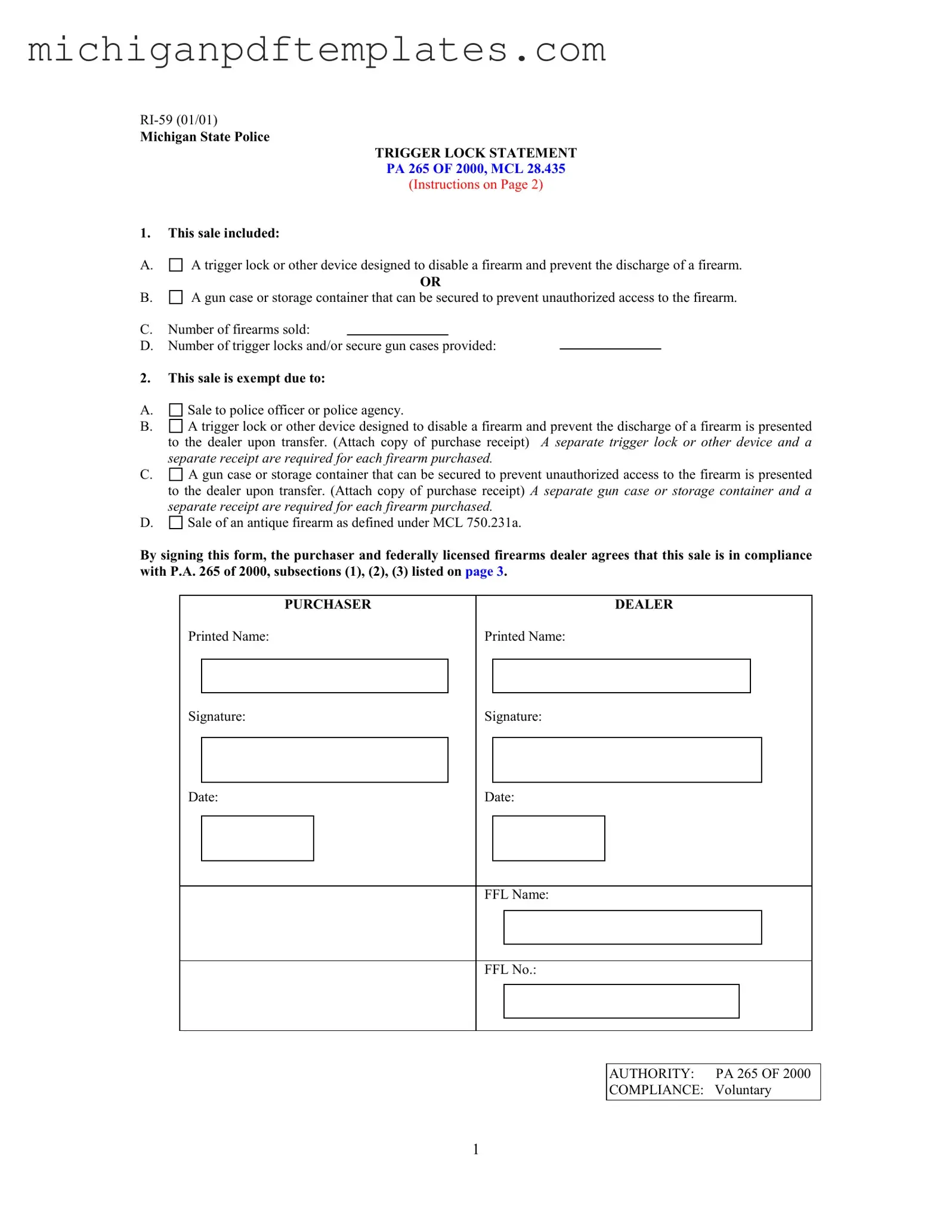Fill in Your Michigan Ri 59 Form
The Michigan RI-59 form, known as the Trigger Lock Statement, is a document required by law for the sale of firearms in Michigan. This form ensures that each firearm purchase includes a trigger lock or a secure storage container, promoting safe firearm storage and use. For those looking to comply with this requirement, filling out the form is essential; click the button below to get started.
Get Your Form Now

Fill in Your Michigan Ri 59 Form
Get Your Form Now

Get Your Form Now
or
▼ PDF Form
Finish this form quickly and move on
Fill in and complete Michigan Ri 59 online quickly.